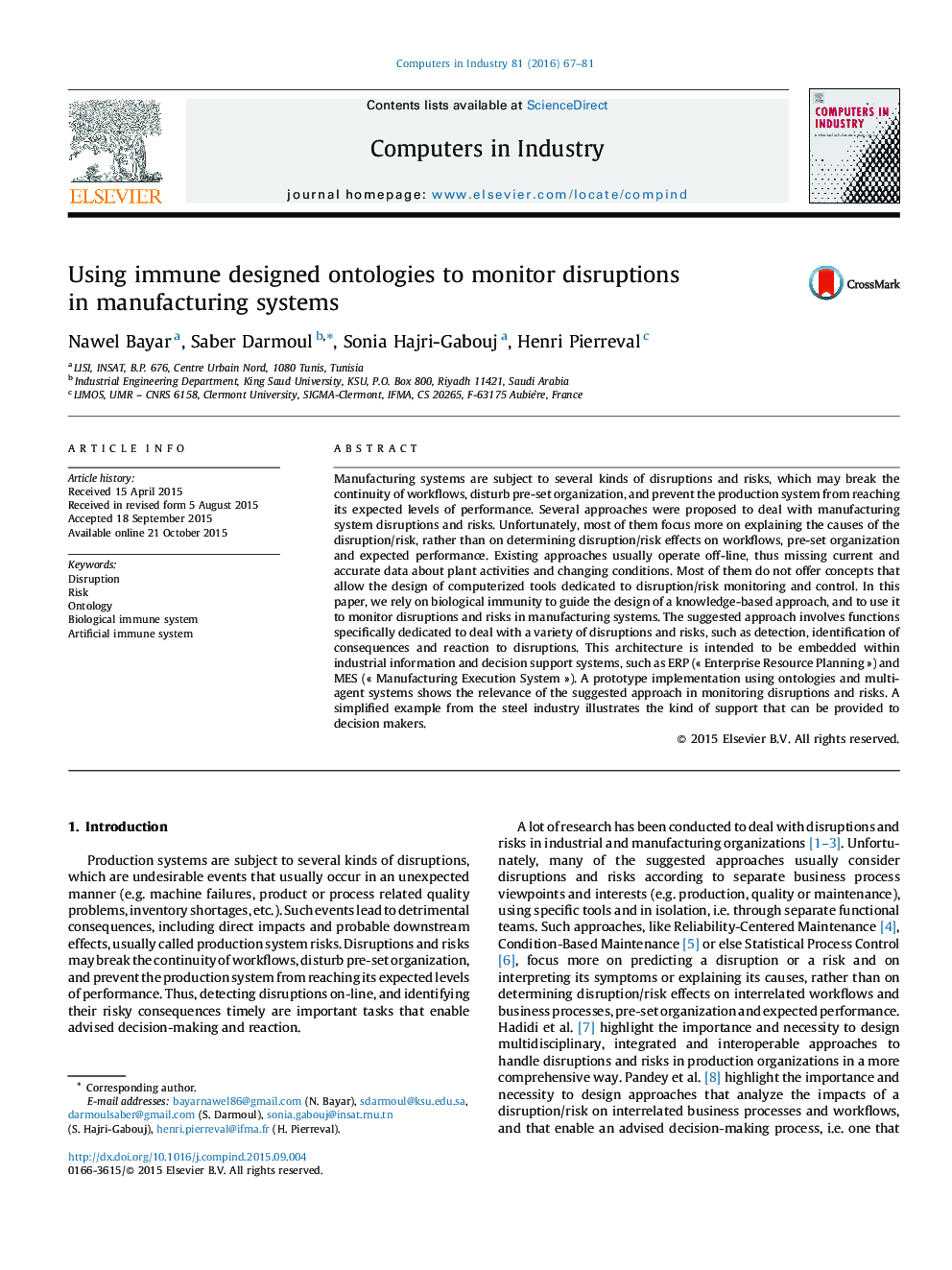| Article ID | Journal | Published Year | Pages | File Type |
|---|---|---|---|---|
| 508575 | Computers in Industry | 2016 | 15 Pages |
•We rely on biological immunity to suggest a knowledge-based approach.•Immunity provides concepts and mechanisms to model, represent and deal with disruptions and risks.•We implement the knowledge-based approach using ontologies and a multi-agent system.•We consider a case study from the steel industry.•We show how the approach detects a machine failure, identifies inventory, production and quality risks, and suggests reaction decisions.
Manufacturing systems are subject to several kinds of disruptions and risks, which may break the continuity of workflows, disturb pre-set organization, and prevent the production system from reaching its expected levels of performance. Several approaches were proposed to deal with manufacturing system disruptions and risks. Unfortunately, most of them focus more on explaining the causes of the disruption/risk, rather than on determining disruption/risk effects on workflows, pre-set organization and expected performance. Existing approaches usually operate off-line, thus missing current and accurate data about plant activities and changing conditions. Most of them do not offer concepts that allow the design of computerized tools dedicated to disruption/risk monitoring and control. In this paper, we rely on biological immunity to guide the design of a knowledge-based approach, and to use it to monitor disruptions and risks in manufacturing systems. The suggested approach involves functions specifically dedicated to deal with a variety of disruptions and risks, such as detection, identification of consequences and reaction to disruptions. This architecture is intended to be embedded within industrial information and decision support systems, such as ERP (« Enterprise Resource Planning ») and MES (« Manufacturing Execution System »). A prototype implementation using ontologies and multi-agent systems shows the relevance of the suggested approach in monitoring disruptions and risks. A simplified example from the steel industry illustrates the kind of support that can be provided to decision makers.
